I have two entities, one is Meal and one is Category. Each category (essentially types of meals, breakfast, dinner etc).
import com.fasterxml.jackson.annotation.JsonIgnoreProperties;
import jakarta.persistence.*;
import lombok.Data;
import lombok.EqualsAndHashCode;
import java.io.Serial;
import java.io.Serializable;
import java.math.BigDecimal;
import java.time.LocalDateTime;
@Data
@Entity
@Table(name = "meal_table")
@EqualsAndHashCode(exclude = {"category"})
public class Meal implements Serializable {
@Serial
private static final long serialVersionUID = 888L;
@Id
@SequenceGenerator(
name = "id_sequence",
sequenceName = "id_sequence",
allocationSize = 1
)
@GeneratedValue(strategy = GenerationType.SEQUENCE,generator = "id_sequence")
private Long id;
private String name;
@ManyToOne(fetch = FetchType.LAZY)
@JoinColumn(name = "categoryId", referencedColumnName = "id")
@JsonIgnoreProperties("meals")
private Category category;
private BigDecimal price;
//item code
private String code;
private String imgUrl;
private String description;
// 0 unavailable 1 available
private Integer status;
// private LocalDateTime createTime;
// private LocalDateTime updateTime;
}
import com.fasterxml.jackson.annotation.JsonIgnore;
import com.fasterxml.jackson.annotation.JsonIgnoreProperties;
import jakarta.persistence.*;
import lombok.Data;
import lombok.EqualsAndHashCode;
import lombok.ToString;
import java.io.Serial;
import java.io.Serializable;
import java.time.LocalDateTime;
import java.util.HashSet;
import java.util.Set;
@Data
@Entity
@Table(name = "category_table")
@EqualsAndHashCode(exclude = "meals")
public class Category implements Serializable {
@Serial
private static final long serialVersionUID = 888L;
@Id
@SequenceGenerator(
name = "id_sequence",
sequenceName = "id_sequence",
allocationSize = 1
)
@GeneratedValue(strategy = GenerationType.SEQUENCE,generator = "id_sequence")
private Long id;
@Column(unique = true)
private String name;
@OneToMany(mappedBy = "category",cascade = CascadeType.ALL)
@ToString.Exclude
@JsonIgnoreProperties({"hibernateLazyInitializer", "handler", "category"})
Set<Meal> meals = new HashSet<>();
public void addMeal(Meal meal){
meals.add(meal);
}
}
I also have a simple DTO class
@Data
public class MealDto extends Meal {
private String categoryName;
private Integer copies;
}
This is the method I used to save the newly added meal
@PostMapping("/")
public CommonResult saveMeal(@RequestBody MealDto mealDto){
log.info(mealDto.toString());
Category c = categoryService.findByName(mealDto.getCategoryName());
// it alwyas prints the desired Category instance.
log.info(c.toString());
Meal meal = new Meal();
BeanUtils.copyProperties(mealDto, meal);
log.info(meal.toString());
c.addMeal(meal);
//https://stackoverflow.com/a/44263632/13062745
meal.setCategory(c);
mealService.save(meal);
return CommonResult.success();
}
However, when I ran the post method in debug mode, I can see that there is an infinite nested dependency of 'Category' and 'Meal' after calling ```meal.setCategory(c)```. I've tried several ways but still not working.
